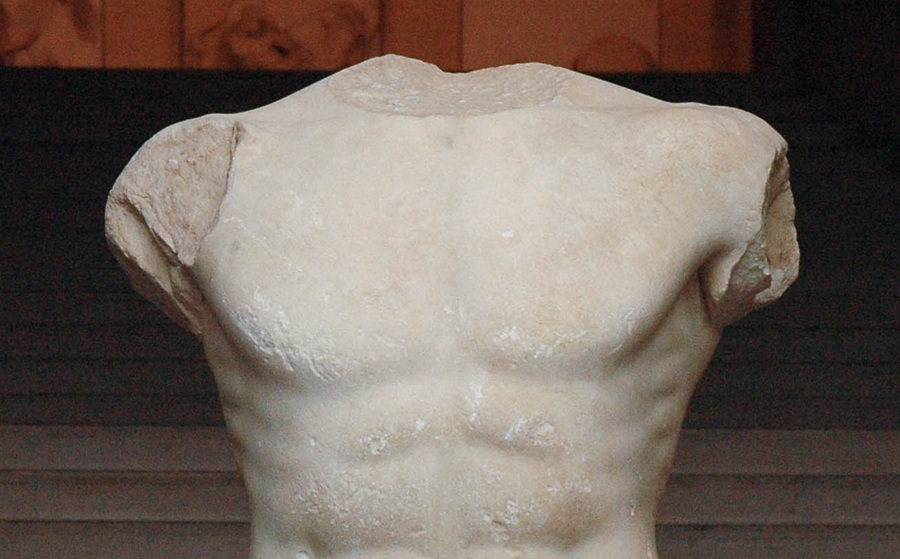- Opinion
- 16 de September de 2025
- No Comment
- 7 minutes read
From emotion to sensibility

THE GREAT SCAM. Opinion Section by David Cerdá
From emotion to sensibility
We must rinse our eyes of the sleep of the useful and the prosaic


Emotional education is talked about to the point of exhaustion—and the results, frankly, speak for themselves. And yet, in secondary education, you’ll be hard pressed to find even a word on the need to cultivate sensibility. Aesthetic education is not some luxury or a waste of time best left to Humanities students; it is a civic, professional and existential necessity of the first order.
Kick any pedagogical stone and out spring fourteen courses on emotional education. And in the semi-therapeutic field, it’s even worse: it’s emotion wall to wall. “Emotional education is a process that must be encouraged from early childhood. Without question, it is in the family that an individual first begins to develop the emotional skills they will use throughout their life. However, schools must assume responsibility for emotional education, not only for the holistic development of each person, but also to accompany them in the process of becoming part of the society in which they live”. So declares the Subdirección General de Cooperación Territorial e Innovación Educativa, on the Ministry’s official website. No small matter.
Yet there is barely a word to be found on aesthetic education. Taste, sensibility—those are elitist indulgences, as we all know. What matters here is creating swarms of consumers, so that anyone can feel entitled to tell you that Billy Wilder’s The Apartment and Love Island are essentially the same thing (thank you for the information, Cuerpos Especiales). The plan is obvious: the masses must be trained to turn the handle and to feel things. A museum is just a shopping centre by another name, and watch out, AI is coming to get us. So thorough is this master plan—so efficient in its erasure of beauty—that most of our fellow citizens make it to adulthood without ever going anywhere near Mozart, Góngora or Bernini — not even with a bargepole.
Such confusion—about feeling, I mean. Feeling is now solely for self-expression, for the five basic emotions, and nothing more. We’ve all seen Inside Out, we know what’s inside us, and we’ve no patience for further complexity. Beauty—especially its claim to objectivity—is a fascist notion, as everyone knows. The sublime is unspeakable, and if objective truth doesn’t exist, why poison the hearts of the young with talk of objective beauty? Why burden their already frail self-esteem with yet another form of oppression? Our schools may have room for emotional life, but not for the good life.
Confucius was once asked why he regularly bought both rice and flowers. “I buy rice to live”, he said, “and flowers to have something to live for”. But who listens to Confucius now?
Needless to say, there exists a road—a six-lane motorway, in fact—leading from art to emotion, or more precisely, to feeling, which is the developed, sustained version of what stirs in our hearts. But no one speaks of feeling any more; we’re too caught up with emotion—move along, please. That motorway, in schools, has long since been overtaken by weeds. The ruling class is not stupid; it knows that a population with cultivated sensibility, ready to think for itself and everything that follows, is… well, let’s say it: a problem.
Rilke—who knew how to be moved—wrote that upon seeing the Archaic Torso of Apollo, he felt he had to change his life. But we no longer cultivate anything at all, for fear that people might take to the streets and bring an end to the business of strongmen and snake oil salesmen.
Perhaps the revolution should begin there: with beauty. But not subjective beauty, not my own beauty, my beautiful body—we’ve had quite enough of that aesthetic of self-regard, thank you. No, I mean the kind of beauty that imposes itself, that brings you to your knees. Only from there can we build lives of greatness and a society worth the name—by reclaiming literature, music, painting and the other arts as forms of human excess, liberated from the grip of utility, even as crawlspaces toward transcendence. Ricardo Ruiz de la Serna once told me how, in the Balkans during times of extreme scarcity, the poor still took pride in offering their children something beautiful and elevated: they learned to play Brahms under conditions of severe austerity.
Let us demand freedom—but please, a freedom greater than that of a pint and a snack. When your sensibility is dulled, your freedom is reduced to that of the hamster: the freedom to choose how fast to run on the wheel.
Do we want creativity? Then we must nurture rich inner lives—citizens who brim with enthusiasm born of sensibility, not of secular preaching. Do we want more democracy? Then we must teach the love of complexity and nuance, and the understanding that ugliness and vulgarity are the handmaidens of fanaticism. Do we need wonder—and how we need it—let us generate it through aesthetic pleasure. We must rinse our eyes of the residue of usefulness and the banal. Only by educating in beauty and transcendence will we build a society capable of questioning everything.
Source: educational EVIDENCE
Rights: Creative Commons

